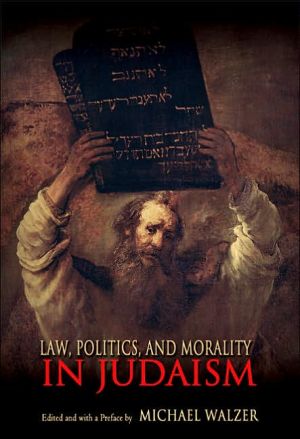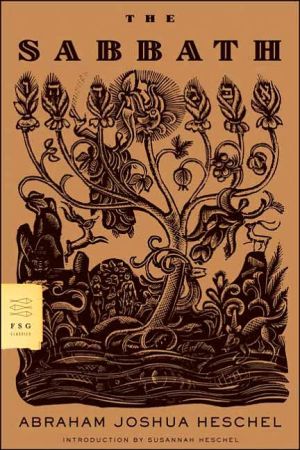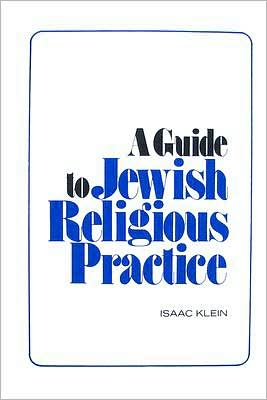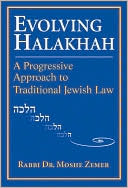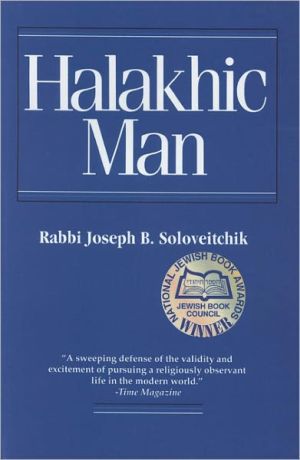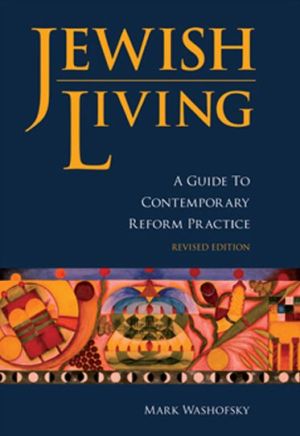Law, Politics, and Morality in Judaism
Jewish legal and political thought developed in conditions of exile, where Jews had neither a state of their own nor citizenship in any other. What use, then, can this body of thought be today to Jews living in Israel or as emancipated citizens in secular democratic states? Can a culture of exile be adapted to help Jews find ways of being at home politically today? These questions are central in Law, Politics, and Morality in Judaism, a collection of essays by contemporary political...
Search in google:
Jewish legal and political thought developed in conditions of exile, where Jews had neither a state of their own nor citizenship in any other. What use, then, can this body of thought be today to Jews living in Israel or as emancipated citizens in secular democratic states? Can a culture of exile be adapted to help Jews find ways of being at home politically today? These questions are central in Law, Politics, and Morality in Judaism, a collection of essays by contemporary political theorists, philosophers, and lawyers. How does Jewish law accommodate--or fail to accommodate--the practice of democratic citizenship? What range of religious toleration and pluralism is compatible with traditional Judaism? What forms of coexistence between Jews and non-Jews are required by shared citizenship? How should Jews operating within halakha (Jewish law) and Jewish history judge the use of force by modern states? The authors assembled here by prominent political theorist Michael Walzer come from different points on the religious-secular spectrum, and they differ greatly in their answers to such questions. But they all enact the relationship at issue since their answers, while based on critical Jewish texts, also reflect their commitments as democratic citizens. The contributors are Michael Walzer, David Biale, the late Robert M. Cover, Menachem Fisch, Geoffrey B. Levey, David Novak, Aviezer Ravitzky, Adam B. Seligman, Suzanne Last Stone, and Noam J. Zohar. Michael L. Morgan - History of Political Thought This volume provides the reader with clear and penetrating discussion of such problems and suggests various models for how to conduct inquiry into them.
Law, Politics, and Morality in Judaism\ \ Princeton University Press\ Copyright © 2006 Princeton University Press\ All right reserved.\ ISBN: 0-691-12508-2 \ \ \ Chapter One\ OBLIGATION: A JEWISH JURISPRUDENCE OF THE SOCIAL ORDER \ ROBERT M. COVER\ Fundamental Words\ Every legal culture has its fundamental words. When we define our subject as human rights, we also locate ourselves in a normative universe at a particular place. The word "rights" is a highly evocative one for those of us who have grown up in the post-Enlightenment secular society of the West. Even those among us who have been graced with a deep and abiding religious background can hardly have escaped the evocations that the terminology of "rights" carries. Indeed, we try in this essay to take a little credit here and there for the luster that the edifice of rights reflects, perhaps suggesting now and again that the fine reflection owes something to some ultimate source of the light.\ Judaism is, itself, a legal culture of great antiquity. It has hardly led a wholly autonomous existence these past three millennia. Yet, I suppose it can lay as much claim as any of the other great legal cultures to having an integrity in its basic categories. When I am asked to reflect upon Judaism and human rights, therefore, the first thought that comes to mind is that the categories are wrong. I do not mean, of course, that basic ideas of human dignity and worth are not powerfullyexpressed in the Jewish legal and literary traditions. Rather, I mean that because it is a legal tradition, Judaism has its own categories for expressing through law the worth and dignity of each human being. And the categories are not closely analogous to "human rights." The principal word in Jewish law, which occupies a place equivalent in evocative force to the American legal system's "rights," is the word mitzvah, which literally means "commandment" but has a general meaning closer to "incumbent obligation."\ Before I begin an analysis of the differing implications of these two rather different key words, I should like to put the words in context- the contexts of their respective myths. These words are connected to fundamental stories and receive their force from those stories as much as from the denotative meaning of the words themselves. The story behind the term "rights" is the story of social contract. The myth postulates free and independent if highly vulnerable beings who voluntarily trade a portion of their autonomy for a measure of collective security. The myth makes the collective arrangement the product of individual choice and thus secondary to the individual. "Rights" is the fundamental category because it is the normative category that most nearly approximates that which is the source of the legitimacy of everything else. Rights are traded for collective security. But some rights are retained, and, in some theories, some rights are inalienable. In any event the first and fundamental unit is the individual, and "rights" locate him as an individual separate and apart from every other individual.\ I must stress that I do not mean to suggest that all or even most theories that are founded upon rights are "individualistic" or "atomistic." Nor would I suggest for a moment that with a starting point of "rights" and social contract one must get to a certain end. Hobbes as well as Locke is part of this tradition. And, of course, so is Rousseau. Collective solutions as well as individualistic ones are possible, but it is the case that even the collective solutions are solutions that arrive at their destination by way of a theory that derives the authority of the collective from the individual. It is necessarily a theory that posits that that which was "given up" and therefore, at least implicitly, that which is desired, is a perfect freedom with all the alienated rights returned and the contradictions resolved.\ The basic word of Judaism is "obligation" or mitzvah. It, too, is intrinsically bound up in a myth-the myth of Sinai. Just as the myth of social contract is essentially a myth of autonomy, so the myth of Sinai is essentially a myth of heteronomy. Sinai is a collective-indeed, a corporate- experience. The experience at Sinai is not chosen. The event gives forth the words, which are commandments. In all rabbinic and post-rabbinic embellishment upon the biblical account of Sinai this event is the code for all law. All law was given at Sinai and therefore all law is related back to the ultimate heteronomous event in which we were chosen- passive voice.\ Now, just as the social contract theories generated by Hobbes and others who bore a monstrous and powerful collective engine from the myth of individualism, so the Sinaitic myth has given rise to countermyths and accounts that stress human autonomy. Indeed, the rabbinic accounts of law-making autonomy are powerful indeed, though they all conclude by suggesting that everything-even the questions yet to be asked by the brilliant students of the future and the answers to those questions-everything was given at Sinai. And, of course, therefore, all is, was, and has been commanded-and we are obligated to this command.\ What have these stories to do with the ways in which the law languages of these respective legal cultures are spoken? Social movements in the United States organize around rights. When there is some urgently felt need to change the law or keep it in one way or another, a "rights" movement is started, civil rights, the right to life, welfare rights, and so on. The premium that is to be put upon an entitlement is so coded. When we "take rights seriously" we understand them to be trumps in the legal game. In Jewish law, an entitlement without an obligation is a sad, almost pathetic thing. There were, in ancient rabbinic Judaism, many obligations from which a blind person was excused. One of the great rabbis of the fourth century, Rabbi Joseph, who was blind, asked the great question of his colleagues: is it greater to do the commandments out of love when one is not obligated to do them or is it greater to do the commandments out of obligation? He had at first assumed that to voluntarily comply with the commandments though not obligated to do so entailed a greater merit. But his colleagues held that to do the commandments out of obligation-more correctly, to do them as obligated-was the act that entailed greater merit. He then offered a feast for the scholars if any could demonstrate that Rabbi Judah's position that the blind were not obligated to do the commandments was erroneous.\ Indeed, to be one who acts out of obligation is the closest thing there is to a Jewish definition of completion as a person within the community. A child does not become emancipated or "free" when he or she reaches maturity. Nor does she/he become sui juris. No, the child becomes bar or bat mitzvah, literally one who is "of the obligations." Traditionally, the parent at that time says a blessing. Blessed is He that has exonerated me from the punishment of this child. The primary legal distinction between Jew and non-Jew is that the non-Jew is only obligated to the seven Noahide commandments. Where women have been denied by traditional Judaism an equal participation in ritual, the reasoning of the traditional legist has been that women are not obligated in the same way as are men with respect to those ritual matters (public prayer). It is almost a sure sign of a nontraditional background for someone to argue that women in Judaism should have the right to be counted in the prayer quorum, to lead prayer services, or to be called to the Torah. Traditionalists who do argue for women's participation (and there are some who do) do so not on the basis of rights. They argue rather that the law, properly understood, does or ought to impose on women the obligation of public prayer, of study of Torah, and so forth. For the logic of Jewish law is such that once the obligation is understood as falling upon women, or whomever, then there is no question of "right" of participation. Indeed, the public role is a responsibility.\ The Uses of Rights and Obligations\ The Jewish legal system has evolved for the past 1,900 years without a state and largely without much in the way of coercive powers to be exercised upon the adherents of the faith. I do not mean to idealize the situation. The Jewish communities over the millennia have wielded power. Communal sanctions of banning and shunning have been regularly and occasionally cruelly imposed on individuals or groups. Less frequently, but often enough, Jewish communities granted quasi-autonomy by gentile rulers have used the power of the gentile state to discipline dissidents and deviants. Nonetheless, there remains a difference between wielding a power that draws on but also depends on preexisting social solidarity, and wielding one that depends on violence. There is also a difference between controlling the violence that is wielded autonomously and being dependent upon a potentially hostile power for that force. The Jewish legal apparatus had not had the autonomous use of violence at its disposal for the two millennia that are, indeed, for all practical purposes the period in which Jewish law as we know it came to be.\ In a situation in which there is no centralized power and little in the way of coercive violence, it is critical that the mythic center of the law reinforce the bonds of solidarity. Common, mutual, reciprocal obligation is necessary. The myth of divine commandment creates that web. It must also be pointed out that through most of the past two millennia there has been no well-defined hierarchy of law articulating voices in Judaism. There have been times when great figures have lamented the cacophony of laws, and have understood it to be a condition imposed upon us for our sins. But another strain has almost rejoiced in the plethora of laws and has drawn strength from the traditional solution given by the Talmud to the question of whether the School of Hillel or the School of Shammai was truly correct. "Both are the words of the Living God." The acceptance of the idea that the single great mythic event of lawgiving can issue in apparently inconsistent precepts and understandings but that the apparent inconsistency can, itself, be the product of two correct readings of a larger understanding-that way of looking at the normative world-was immensely useful to a people doomed to live without a hierarchically determined authoritative voice. It was a myth that created legitimacy for a radically diffuse and coordinate system of authority. But while it created room for the diffusion of authority, it did not have a place for individualism. One might have independent and divergent understandings of the obligations imposed by God through his chosen people, but one could not have a world-view that denied the obligations.\ The jurisprudence of rights, on the other hand, has gained ascendance in the Western world together with the rise of the national state with its almost unique mastery of violence over extensive territories. Certainly, it may be argued, it has been essential to counterbalance the development of the state with a myth that (a) establishes the state as legitimate only insofar as it can be derived from the autonomous creatures who trade in their rights for security-that is, one must tell a story about the states' utility or service to us, and (b) potentially justifies individual and communal resistance to the Behemoth. It may be true as Bentham so aptly pointed out that natural rights may be used either apologetically or in revolutionary fashion, and there is nothing in the concept powerful enough analytically to constrain which use it shall be put to. Nevertheless, it is the case that natural rights apologies are of a sort that in their articulation limit the most far-reaching claims of the state, and that the revolutionary ideology that can be generated is also of a sort that is particularly effective in countering organic statist claims.\ Thus, there is a sense in which the ideology of rights has been a useful counter to the centrifugal forces of the Western nation-state while the ideology of mitzvoth or obligation has been equally useful as a counter to the centripetal forces that have beset Judaism over the centuries. But, in a sense, this kind of speculation is beside the point. The primary function of basic words is not to be found in so simple a functional explanation. We must look to the internal organization of normative thought, not to the external political results in the first instance.\ The Nature of the Jurisprudence of Mitzvoth\ The leading Maimonides scholar of this generation, Professor Isadore Twersky, has attributed to Maimonides' philosophy of law a thoroughgoing teleological understanding of the mitzvoth. Maimonides is generally thought of as being at the rationalist end of the spectrum of Jewish thinkers, so perhaps this attribution is natural. In any event, the position of Twersky is that Maimonides understood the rationale for the obligations of mitzvoth not only in terms of the bases for each of the commandments understood alone, but more important as a system with a systemic telos as well. In particular, Maimonides' system contrasts the normative world of mitzvoth with the world of vanity- hebel. It seems that Maimonides, in this respect, as in so many others, has hit the mark. A world centered upon obligation is not, really cannot be, an empty or vain world. Rights, as an organizing principle, are indifferent to the vanity of varying ends. But mitzvoth because they so strongly bind and locate the individual must make a strong claim for the substantive content of that which they dictate. The system, if it's content be vain, can hardly claim to be a system. The rights system is indifferent to ends and in its indifference can claim systemic coherence without making any strong claims about the fullness or vanity of the ends it permits.\ Maimonides' claim is more specific than the above. In the Epistle to Yemen he writes:\ If he could only fathom the inner intent of the law, he would realize that the essence of the true divine religion lies in the deeper meaning of its positive and negative precepts [mitzvoth], every one of which will aid man in his striving after perfection, and remove every impediment to the attainment of excellence.\ It is difficult in the light of such a claim to apply certain familiar categories of jurisprudence such as the distinction between a morality of duty and one of aspiration. It is certainly true that Judaism like every other normative system recognizes degrees of attainment in moral or legal excellence. However, the mitzvoth generally do not distinguish between precepts of duty and those of aspiration. And, indeed, the element of aspiration comes into the picture in part as a natural growth from the discipline of the duty imposed upon all. In any event, purpose and divine purpose are located in the basic word.\ The Natural Domains of Rights and Mitzvoth\ There are certain kinds of problems that a jurisprudence of mitzvoth manages to solve rather naturally. There are others that present conceptual difficulties of the first order. Similarly, a jurisprudence of rights naturally solves certain problems while stumbling over others. It seems interesting to me that these dissimilarities have not been much explored. The claim I am making is not a very strong one. It is not, I will stress, that particular problems cannot be solved, in one system or the other-only that the solution entails a sort of rhetorical or philosophical strain.\ The jurisprudence of rights has proved singularly weak in providing for the material guarantees of life and dignity flowing from the community to the individual. While we may talk of the right to medical care, the right to subsistence, the right to an education, we are constantly met by the realization that such rhetorical tropes are empty in a way that the right to freedom of expression or the right to due process are not. When the issue is restraint upon power, it is intelligible to simply state the principle of restraint. Of course, whether the restraint will be effective depends on many things, not least of which is the good faith of those restrained. However, the intelligibility of the principle remains because it is always clear who is being addressed-whoever it is that acts to threaten the right in question. However, the "right to an education" is not even an intelligible principle unless we know to whom it is addressed. Taken alone it only speaks to a need. A distributional premise is missing that can only be supplied through a principle of "obligation."\ (Continues...)\ \ \ \ \ Excerpted from Law, Politics, and Morality in Judaism Copyright © 2006 by Princeton University Press. Excerpted by permission.\ All rights reserved. No part of this excerpt may be reproduced or reprinted without permission in writing from the publisher.\ Excerpts are provided by Dial-A-Book Inc. solely for the personal use of visitors to this web site. \ \
1Obligation : a Jewish jurisprudence of the social order32Judaism and civil society123Civil society and government344Autonomy and modernity505Land and people576Contested boundaries : visions of a shared world837Diversity, tolerance, and sovereignty968Responses to modernity1219Judaism and cosmopolitanism12810Commanded and permitted wars14911Prohibited wars16912Judaism and the obligation to die for the state182
\ History of Political ThoughtThis volume provides the reader with clear and penetrating discussion of such problems and suggests various models for how to conduct inquiry into them.\ — Michael L. Morgan\ \ \ \ \ History of Political Thought - Michael L. Morgan\ This volume provides the reader with clear and penetrating discussion of such problems and suggests various models for how to conduct inquiry into them.\ \
